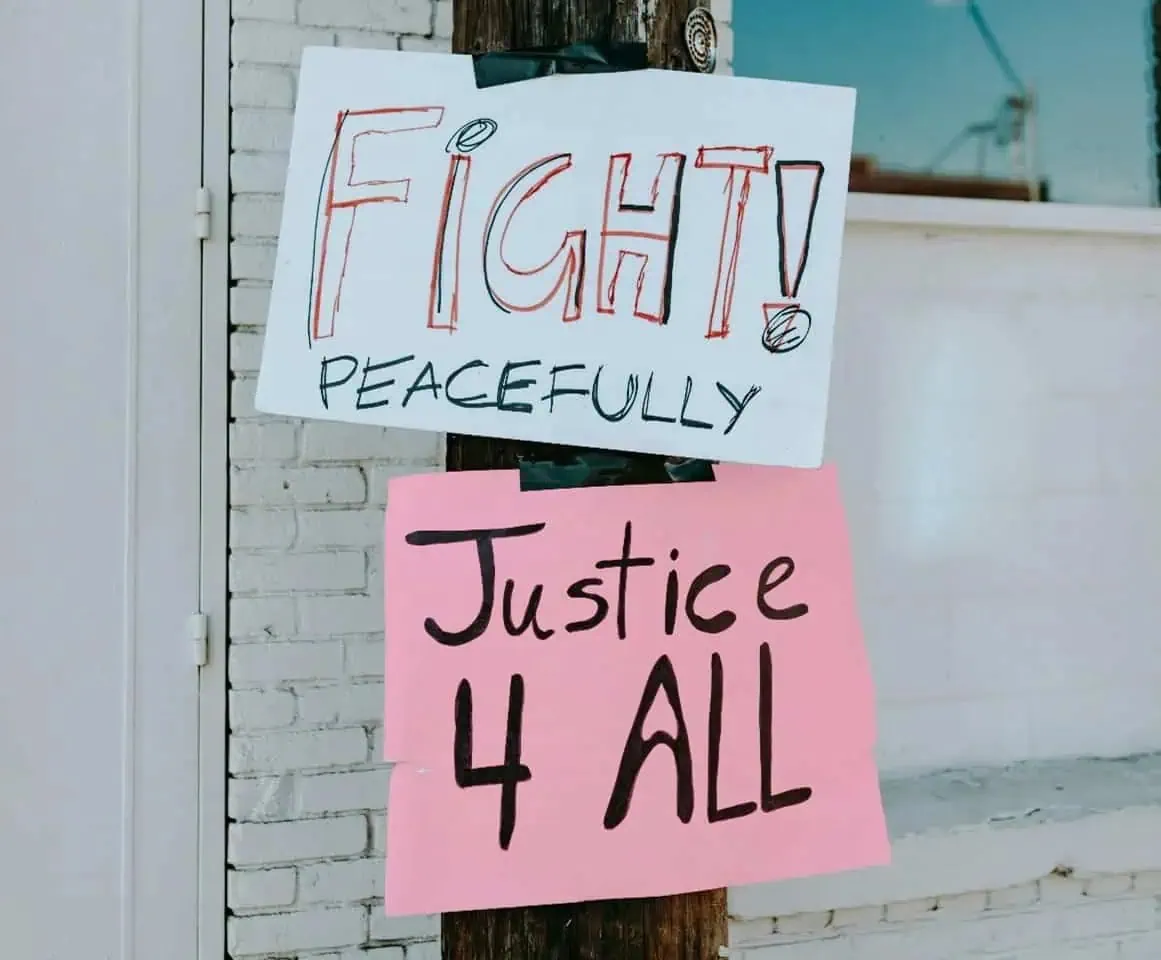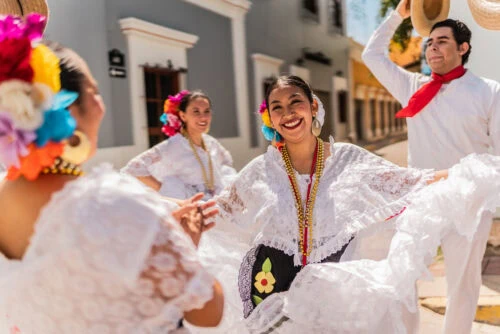Welcome to your essential guide on American civil rights history in the northeastern United States, which is exceptionally crafted for entry-level job seekers. As you embark on your career journey, understanding the rich civil rights heritage of the Northeast can empower you and inform your path. This guide is designed to give you a deeper appreciation of the struggles and victories that paved the way for a more inclusive and diverse workplace environment.
In the Northeast, the civil rights movement has left an indelible mark on the fabric of society, influencing policies and shaping the principles of organizations and companies you might soon be a part of. By becoming acquainted with this history, you enrich your knowledge and align yourself with the values of equality, inclusion, and diversity that are increasingly becoming the cornerstone of corporate America.
This guide is more than just a look into the past; it’s your roadmap to understanding the importance of diversity within a workplace and recognizing its role in creating equitable opportunities for all. Let this knowledge inspire you as you take your first steps into the professional world. With this foundation, you can continue the legacy of civil rights, champion diversity, and contribute to a future where everyone’s potential can be fully realized.
The Northeast’s Role in Civil Rights History
The civil rights movement reshaped the Northeastern US just as much as it did in the South. Often, we focus on the South when we talk about civil rights. Yet, the history of the Northeastern United States Civil Rights is too important to overlook. This area was home to vibrant activism and critical events that pushed for equality and justice.
Several universities and organizations in the Northeast have played a significant role in preserving Civil Rights History. One such example is the Civil Rights and Restorative Justice Project at Northeastern University. This project delves into race, history, and justice. It brings to light cases from the past that need to be acknowledged and learned from.
Key Contributions:
- The Northeast was a hub for critical discussions and movements shaping national equality and justice policies.
- Activists from the Northeast played crucial roles, organizing protests and challenging discriminatory laws.
The Northeastern United States enriched the Civil Rights History Northeast narrative through education and activism, offering a unique perspective on the struggle for equal rights. For more insights into the diverse aspects of civil rights, check out articles on bilingualism and cultural diversity, showcasing the multifaceted nature of civil rights efforts nationwide.
Understanding Civil Rights through Education and Action
Education played a crucial role in spreading the ideals of the civil rights movement across the Northeast. Schools and universities became grounds for activism, debate, and learning. They served as learning institutions and beacons of change and progress.
Educational Milestones:
- Schools and colleges hosted speakers and events that championed civil rights.
- Educational programs focused on teaching civil rights history, ensuring future generations understand its importance.
The fight for civil rights also moved beyond educational institutions into the realms of legal battles and policy changes. This region’s advocates worked tirelessly, contributing to national efforts like the Civil Rights Act 1964. Their legal and legislative actions helped secure rights for all Americans, demonstrating the powerful link between knowledge, activism, and broader societal change.
As we dive deeper into the history of civil rights in the Northeastern US, we see how crucial intertwined movements and educational initiatives were. For a closer look at how education plays a pivotal role in fostering diversity and understanding, explore the potential of qualified educators in driving social change.
The Power of Storytelling in Civil Rights History
Stories from the civil rights era hold immense power. They inspire, educate, and remind us of the struggles faced. In the Northeastern US, storytelling has preserved civil rights history. It connects people across generations.
Oral Histories and Narratives:
- Survivors and activists share their experiences, making history come alive.
- These stories stress the importance of fighting for justice.
Stories highlight the personal cost of activism. They reveal the bravery of individuals in the Northeast and beyond. Such narratives remind us why the fight for rights is essential.
Today, we must keep sharing these stories. They serve as powerful lessons. Also, they ensure the legacy of civil rights history in the Northeastern US endures. For a look into the role of cultural expression in civil rights, our global cultural festivals in February article offers insights into how different cultures celebrate and remember their histories.
Activism and Legal Milestones in the Northeast
Activism in the Northeast greatly impacted the nation’s civil rights history. It shaped key legal milestones that we all cherish today. This region’s activities propelled the civil rights movement forward, fighting against discrimination and inequality.
Key Events and Achievements:
- Northeast activists organized sit-ins and protests that grabbed national headlines.
- They also played a critical role in pushing for legislation that protected civil rights.
One landmark battle was for the Civil Rights Act of 1964. Northeastern legislators and activists were pivotal in this fight. They aimed to end segregation in public places and employment discrimination. Their tireless efforts paid off when the act was signed into law.
The Northeastern United States Civil Rights movement was about more than protests. It was an ongoing struggle for equality and fairness in every part of society. To further explore how food unites cultures and supports the fight for civil rights, consider reading about the cultural significance of food. This article provides a unique perspective on how everyday life contributes to our understanding of civil rights.
Learning from our Past: Oral Histories and Projects
Oral histories give voice to those in the Civil Rights History of the Northeastern US. These stories offer insights and teach valuable lessons. Projects focused on capturing these narratives help preserve the history of the Northeast’s fight for equality.
Vital Oral History Efforts:
- Interviews with civil rights leaders and everyday participants document the movement’s breadth.
- Academic projects compile these accounts for future generations to learn from and be inspired by.
One such project, Northeastern University’s initiative, emphasizes the significance of recovering and understanding the past. These projects ensure that the tales of bravery and struggle in the Northeast are not forgotten. They stress the importance of ongoing efforts to fight racism and promote justice.
Furthermore, these oral histories serve as a reminder. They show the power of collective action and the impact of standing up for what is right. Explore NAACP’s initiatives for resources on continuing the fight for justice and participating in civil rights advocacy.
Embracing Diversity and Inclusion Today
The lessons from the Civil Rights History of Northeastern US resonate deeply today. They guide us in embracing diversity and inclusion in our communities. Recognizing the region’s role in shaping civil rights helps us appreciate the importance of unity and respect for all.
Current Efforts for Inclusion:
- Community programs that promote diversity and understanding.
- Workshops and seminars that educate about civil rights and the significance of inclusion.
Schools and workplaces are adopting more inclusive policies. These efforts reflect our understanding of the past and our hope for a fairer future. We see a continuing commitment to justice and equal rights, inspired by the activism and achievements of those who fought for civil rights in the Northeast.
As we march forward, let’s keep the spirit of the civil rights movement alive. Working together makes strides towards a society where everyone is valued and included. For individuals looking to contribute to ongoing civil rights efforts, exploring caregiving careers offers a pathway to making a meaningful impact through compassionate action.
Continuing the Fight for Justice
The struggle for civil rights in the Northeastern US has evolved but hasn’t ended. Today, we carry on the legacy of those who fought before us. It’s our turn to stand up for equality and justice in all aspects of society.
Ways to Stay Engaged:
- Supporting local and national civil rights organizations.
- Participating in educational and advocacy events.
- Spreading awareness about civil rights history and its continued relevance.
Staying informed about current civil rights challenges is crucial. It helps us understand where we can make a difference. By joining hands and raising our voices, we become a part of the ongoing journey towards justice.
The Civil Rights History Northeastern US teaches us about resilience and the power of collective action. Let’s honor this history by contributing to a world where everyone’s rights are recognized and respected. This commitment to justice and equality is how we shape a better future for all.
FAQ’s
Why is the Civil Rights History in the Northeastern US important?
The Northeast has played a vital role in the civil rights movement. Understanding its contributions helps us appreciate the nationwide effort toward equality.
What were some key events of the civil rights movement in the Northeast?
Activism, educational reforms, and legal victories were crucial. These included protests, policy changes, and efforts to preserve civil rights history.
How can I learn more about civil rights history?
Visiting local museums, reading books, and exploring online resources are great ways to dive deeper into this significant aspect of American history.
How can I contribute to the ongoing fight for civil rights?
Supporting relevant organizations, staying informed, and engaging in community efforts are effective ways to make a difference.
Are there ongoing civil rights issues in the Northeast?
Yes, the fight for justice and equality continues. Issues like racial equality, education, and employment fairness are areas where work is still needed.
Conclusion
The exploration of Civil Rights History in the Northeastern US offers a profound look into the struggles and triumphs that have shaped the nation’s journey toward equality and justice. From pivotal legal battles to grassroots activism, the Northeast has been a beacon of change and a testament to the power of collective action. This history is not just a chronicle of past events; it’s a blueprint for understanding the challenges we face today and a guide for navigating the path forward.
The journey towards civil rights and equality is ongoing, and there’s a role for everyone to play. This is where you come in. By joining Diversity Employment, you become part of a community committed to making a difference with diversity inclusion positions. We invite you to be a part of this vibrant community. Together, we can continue the legacy of those who fought for justice in the Northeast and beyond. Join Diversity Employment today, and let’s work towards a future where diversity, equality, and inclusion are not just ideals but realities for all.




